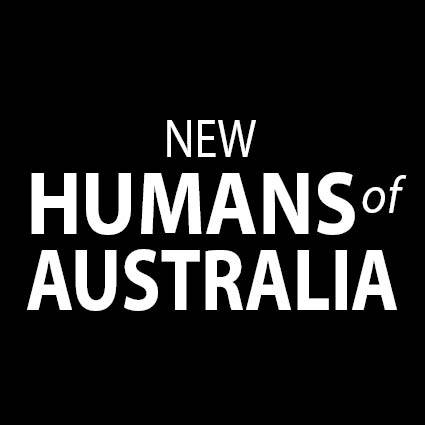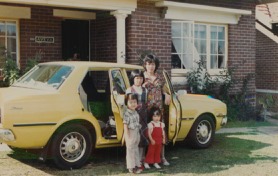It took us 3 near death attempts to escape communist Vietnam. The first time, I was six years old. Of the three boats, one made it to resettlement, one completely sank, and ours started sinking, until luckily 5 hours later a fisherman’s boat came by and rescued us. My father had to throw my 6 month old brother from our boat to theirs, in the hopes that they would catch him! Thankfully, they did.
At that time, there was no freedom in Vietnam. The communists were always interrogating my parents, and trying to get full ownership of their successful businesses. My uncle actually hanged himself because they kept on interrogating him. And my parents felt that if they stayed, they would probably die too. But at least if they escaped, there was a chance of survival.
On our second attempt, we were out for a whole night and a day before we encountered a huge storm. The water kept gushing over us, with waves so huge we couldn’t breathe. All I could hear was ‘bang bang bang’ and then we saw the top cabin was smashed. At that time, my mother, my baby brother and I were at the bottom of the boat, and the situation was so grim that my father came to the three of us and said goodbye! But although the water kept crashing down for 14 hours, we didn’t sink. Those who were on the top deck believed that there were two whales underneath the boat, supporting us through the storm.
Our third attempt was successful, and after five nights, we reached the Hong Kong shore, where we were put in what we called a ‘black camp’, a place with a cover overhead but no walls. We slept on the ground there. It was always wet, but my father found a piece of cardboard for my brother to sleep on, and he would try to take me somewhere dry to sleep each night. For breakfast, we would get a bowl of rice, which we would ration, eating half and leaving the other half for lunch. Then in the evening we would be given another bowl. We were always weak and hungry there. I will never forget the day when a security guard threw some orange peel onto the ground. I ran and grabbed it, and ate it. It was the most delicious thing.
After 21 days, we were transferred to a refugee camp called Jubilee. Each room contained 4 families, and our family was given one bunkbed, which we all slept on together. There was no mattress or pillows, so all the money my parents earned at first was spent on buying those things, and a curtain for privacy. It was hard to adjust to after coming from a privileged lifestyle, but compared to being in the black camp and on the boat in the storm, it was a luxury. Anyway, in our culture, we accept what we’re given and we don’t complain.
We had a lot more freedom there and my parents were allowed to work. My father worked for the UNHCR teaching primary school children, and my mother began sewing the Vietnamese traditional dress called ao-dai for the other refugees. We were very lucky that they both had work.
One day, after about 18 months, my father took me to an office with sheets of names on the wall, and started reading through the list. I remember when he saw our names on the list for Australia, he was so happy that his legs started shaking!
In Sydney, we were taken at first to a hostel in East Hills, but after 6 months we rented a three-bedroom house in Bankstown with another family. My father worked in an aluminium factory and my mother continued to make ao-dai until, after 3 years, they had saved enough for a deposit for our own house.
I started Year 3 in Bankstown Public School. It wasn’t easy. I didn’t speak English at first, and kids would call me names like ‘Ching chong’, and pull their eyes sideways when they saw me. My parents also experienced racism. One of our neighbours were constantly watching us and throwing things in our yard. And I saw shop assistants who wouldn’t help my mother find things in the store. I saw all the adversity my parents endured, but they never said a thing.
I didn’t have much of a childhood in the sense that there wasn’t much playtime. I soon had four younger siblings to help take care of, as well as chores and cleaning. I was also always studying hard, as I felt that I had to set a good example for my siblings.
My parents saved hard and eventually my father was able to go into a partnership with two friends to open a garment factory. They made clothes for Katies and Suzanne Grae, until eventually the competition from China became too strong. Later, he and my mother opened Pho Viet, a pho restaurant in Cabramatta.
After school, I studied Chemical Engineering at the University of New South Wales. It was difficult, especially in a male-dominated discipline, but I succeeded and went on to work as an engineer, among other roles. However, I later decided to support my husband in his orthopaedic practice, and to spend time taking care of my children.
I always felt it was extremely important for me to do well so that my parents’ efforts to escape for a brighter future wouldn’t be wasted. There are still many things I don’t know about our journey. They don’t talk about it because it’s too traumatic. But I know that every day, they thank God that they came to Australia.
Cam Linh
Vietnam
Arrived 1980
This story is brought to you with love, free of advertising. If you would like to support my work, please visit: www.patreon.com/newhumansofaustralia.
Or you can buy the NHOA coffee table book here: www.newhumansofaustralia.org/shop ❤️
#refugee #refugeestories #Vietnam #Sydney #Australia #inspiration #newhumansofaustralia #storiesnotstereotypes




